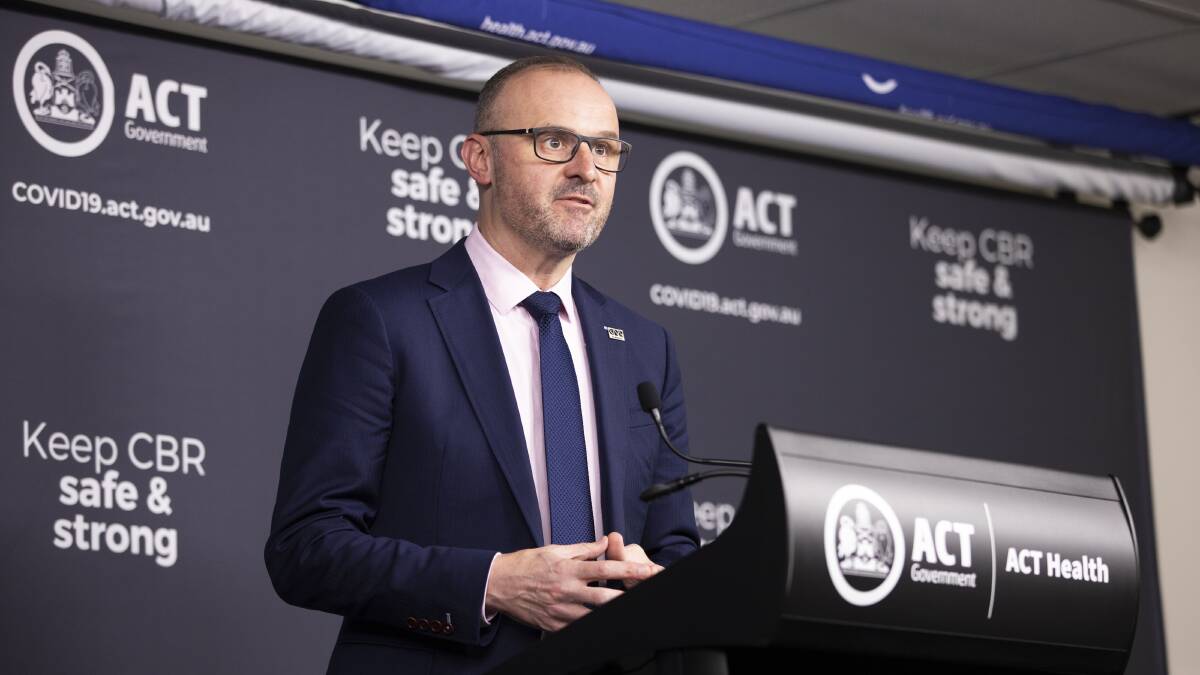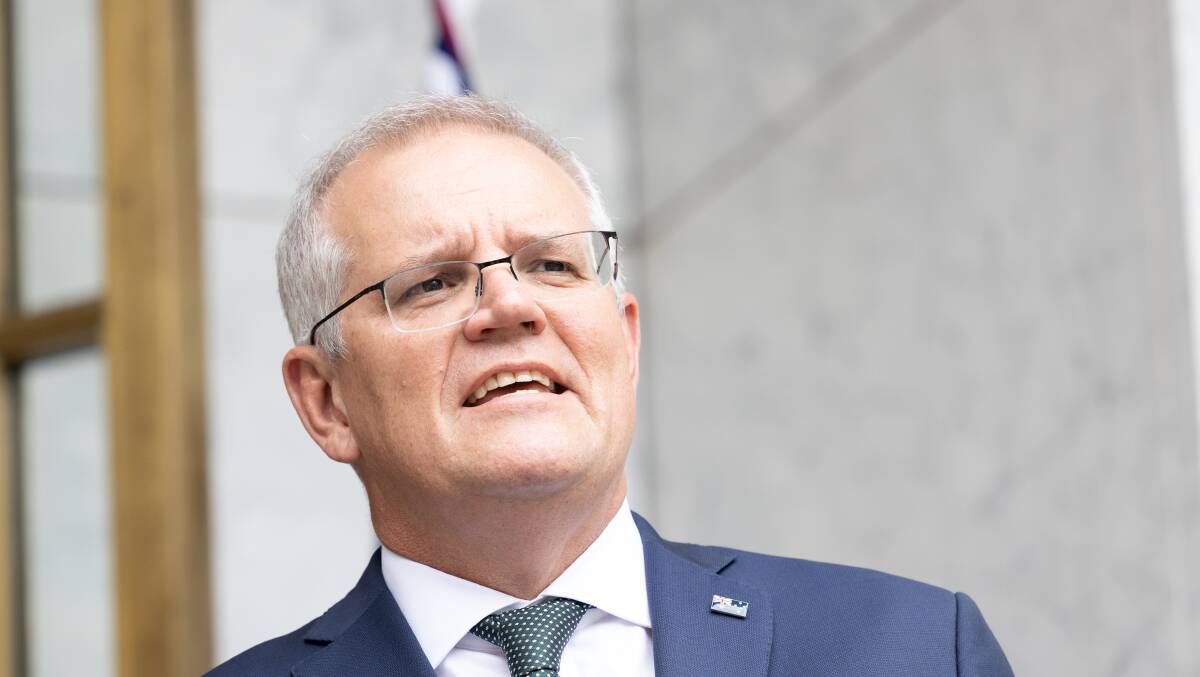
A return to classroom learning at the start of the school year now hinges on whether the ACT government can secure enough rapid antigen tests for use in expanded safety measures.
The ACT government is still planning for students to return in less than a fortnight's time but has been unable to guarantee enough rapid antigen tests would be on hand, deferring an announcement that had been expected on Friday.
The delay comes after the Commonwealth agreed to split the cost of rapid antigen tests in schools on a 50-50 basis with states and territories.
ACT Chief Minister Andrew Barr on Thursday said the arrangements for term 1 would be unveiled when plans were finalised, but there would be additional protections, including rapid antigen tests for teachers and students.
"This also includes discussions with NSW and Victoria to ensure test supply and as much consistency between the jurisdictions as possible," Mr Barr said.
"Our schools will always prioritise the safety of students and staff, while continuing to provide the best possible education to our children and young people."
A decision on whether ACT students would return to the classroom or be required to learn remotely at the start of the term had been expected sometime this week, but Mr Barr said it would now be made in "the coming days".
Prime Minister Scott Morrison announced after Thursday's national cabinet meeting that the Commonwealth would split the cost for surveillance testing for school students and staff.
However, Mr Morrison made clear that states and territories would have to source their own supplies of the sought-after testing kits.

Mr Barr welcomed the funding arrangement, but did not commit to a surveillance testing program for school staff and students in the territory.
"The ACT government welcomes this contribution from the Commonwealth that will make more tests available for more people. The ACT will continue to utilise a combination of PCR and rapid antigen testing as part of our pandemic response," Mr Barr said.
A surveillance testing program that would require public school students to complete two rapid antigen tests each week would need more than 116,000 test kits a week, or around 1.2 million tests for each 10-week term.
Even more rapid test kits would be required to include school teachers and staff in a surveillance testing program.
The federal government has put the cost-sharing offer on the table despite its medical experts not recommending school testing regimes.
Mr Morrison is desperate for students to return to class and has acknowledged that some states might see testing as necessary to reopen schools amid the Omicron wave.
The Prime Minister fears that closing schools would exacerbate the existing workforce shortages by pulling parents away from work.
National cabinet last week agreed to a set of principles for managing the return to class, which included that schools should be "first to open and the last to close wherever possible in outbreak situations".
"We need the schools open and we need them to stay open," Mr Morrison said on Thursday.
"If schools aren't open we could see the peak furloughing of our workforce go from 10 per cent to 15 per cent, which would have a devastating effect on our economy and the broader functioning of society. So keeping schools open is a priority for us all."
The ACT had received only a small fraction of its rapid antigen test orders on Wednesday, and health authorities were unsure when more testing kits would arrive.
The territory government had ordered 1.6 million rapid antigen tests, but by Wednesday only 62,000 had been delivered.
About 44,000 rapid antigen tests have been issued to people at the ACT's government COVID-19 testing clinics.
"Integrating the distribution of [rapid antigen tests] at our COVID-19 testing clinics has significantly reduced the wait times for PCR tests at both the Mitchell and Garran. The use of [rapid antigen tests] is now a part of our ongoing testing strategy," Mr Barr said.
"There are now 23 types of approved [rapid antigen tests], including some that will be produced domestically, this will help with supply into the future."
Opposition education spokesman Jeremy Hanson said students should return to face-to-face learning at the beginning of term 1.
"If children are not going back into the classroom, it's a stark failure of government on a number of levels," Mr Hanson said.
Mr Hanson said if the ongoing shortage of teachers or the lack of rapid antigen tests prevented children from going back to school, then the blame would be on the ACT government.
"The government should be taking every action to get children back to school," he said.
"Any lack of [rapid antigen tests] in [the] ACT falls squarely on the ACT government's shoulders."
Mr Hanson said parents would have mixed views if term 1 began with remote learning and said some parents "are adamant children should be returning but there are some that are nervous".
"Parents have got to manage this in terms of their own work and looking after kids," he said.
The teachers' union has already warned there will not be enough educators to keep schools open for in-person learning in term 1.
Australian Education Union ACT secretary Patrick Judge previously said the lack of relief teachers to cover for sick or isolating teachers was the biggest issue schools were facing.
"Indications are we need to be preparing for the possibility of remote learning at the very least," Mr Judge said earlier this week.
"It's going to be very challenging for schools to continue in person."
The public school teacher's union has been advocating for free rapid antigen tests, better-quality masks for teachers and better ventilation as part of the school return planning.
ACT Association of Independent School Executive Director Andrew Wrigley said on Thursday discussions with government were ongoing about supplies of rapid antigen tests for schools.
The ACT reported 892 new cases of COVID-19 in the 24 hours to 8pm Wednesday, the lowest number of new cases since January 5.
There were 62 people in hospital with COVID-19, three of whom were in intensive care; two were being ventilated.







